 W
WBritish culture is influenced by the combined nations' history; its historically Christian religious life, its interaction with the cultures of Europe, the traditions of England, Wales and Scotland, and the impact of the British Empire. Although British culture is a distinct entity, the individual cultures of England, Scotland, Wales and Northern Ireland are diverse and have varying degrees of overlap and distinctiveness.
 W
WAutism Sunday, also known as the International Day of Prayer for autism spectrum disorders, is an event observed annually on the second Sunday of February.
 W
WA Blue Peter badge is an award for Blue Peter viewers, given by the BBC children's television programme for those appearing on the show, or in recognition of achievement. They are awarded to children aged 6 to 15, or to adults who have been guests on the programme. Approximately 22,000 are distributed annually.
 W
WGeographers' A-Z Map Company Ltd. is the largest independent map publisher in the United Kingdom providing cartographic services, digital data products and paper mapping publications.
 W
WBrexit is the commonly used term for the United Kingdom's withdrawal from the European Union on 31 January 2020, which resulted from a referendum on 23 June 2016. This article details the mostly critical response to this decision in the visual art, novels, theatre, and film.
 W
WBritish philosophy refers to the philosophical tradition of the British people. "The native characteristics of British philosophy are these: common sense, dislike of complication, a strong preference for the concrete over the abstract and a certain awkward honesty of method in which an occasional pearl of poetry is embedded".
 W
WBritishness is the state or quality of being British, or of embodying British characteristics. It comprises the claimed qualities that bind and distinguish the British people and form the basis of their unity and identity, and the expressions of British culture—such as habits, behaviours, or symbols—that have a common, familiar or iconic quality readily identifiable with the United Kingdom. Dialogue about the legitimacy and authenticity of Britishness is intrinsically tied with power relations and politics; in terms of nationhood and belonging, expressing or recognising one's Britishness provokes a range of responses and attitudes, such as advocacy, indifference, or rejection.
 W
WCar boot sales or boot fairs are a form of market in which private individuals come together to sell household and garden goods. They are popular in the United Kingdom, where they are often referred to simply as 'car boots'.
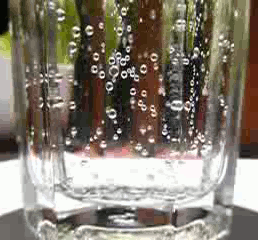 W
WCarbonated water is water containing dissolved carbon dioxide gas, either artificially injected under pressure or occurring due to natural geological processes. Carbonation causes small bubbles to form, giving the water an effervescent quality. Common forms include sparkling natural mineral water, club soda, and commercially-produced sparkling water.
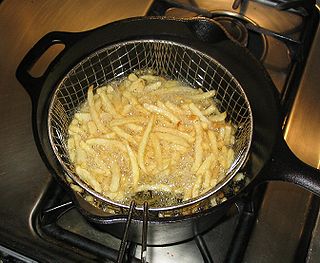 W
WA chip pan is a deep-sided cooking pan used for deep-frying. Chip pans are named for their traditional use in frying chips.
 W
WCool Britannia was a period of increased pride in the culture of the United Kingdom throughout most of the 1990s, inspired by 1960s pop culture. The success of Britpop and musical acts such as the Spice Girls, Blur and Oasis led to a renewed feeling of optimism in the United Kingdom following the tumultuous years of the 1970s and 1980s. The name is a pun on the title of the British patriotic song "Rule, Britannia!"
 W
WCool Cymru was a Welsh cultural movement centred around music, independent film, and other artistic endeavours by young Welsh figures prior to and during the new millennium. It was highlighted in 1999 when the BBC announced that year as the "year of Cool Cymru".
 W
WThe coronation of the British monarch is a ceremony in which the monarch of the United Kingdom is formally invested with regalia and crowned at Westminster Abbey. It corresponds to the coronations that formerly took place in other European monarchies, all of which have abandoned coronations in favour of inauguration or enthronement ceremonies.
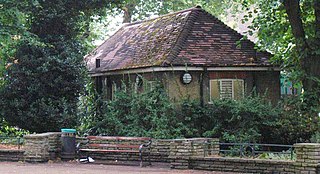 W
WCottaging is a gay slang term, originating from the United Kingdom, referring to anonymous sex between men in a public lavatory, or cruising for sexual partners with the intention of having sex elsewhere. The term has its roots in self-contained English toilet blocks resembling small cottages in their appearance; in the English cant language of Polari this became a double entendre by gay men referring to sexual encounters. See also gay beat in Australian English.
 W
WCrockfords is a casino in London located on Curzon Street. The casino is located near and based on the former gentlemen's club in London called Crockford's.
 W
WCrufts is an international dog show held annually in the United Kingdom. Organised and hosted by the Kennel Club, it is the largest show of its kind in the world.
 W
WThe British diaspora consists of people of British ancestry who emigrated from the British Isles. The largest proportional concentrations of people of self-identified British descent in the world outside of the United Kingdom and its Overseas Territories occur in New Zealand (59%), Australia (46%), Canada (31%), the United States (11%) and parts of the Caribbean. Those who do claim British ancestry form a sub-set of those who could claim British ancestry; the British diaspora includes about 200 million people worldwide.
 W
WFit-up refers to the old style of theatre or circus where companies of travelling players or performers would tour from town or village to village in the provinces of Britain and elsewhere, particularly throughout the 19th-century. Taken from the noun 'Fit-up', the term is theatre slang to describe a stage or tent or booth that can be transported and erected quickly for shows. A fit-up company would be a travelling company of players which carries its scenery, props and costumes that can be set up in a temporary venue - which might be a large tent or a village hall. 'Fit-up' companies were particularly prevalent in 19th-century Ireland and a study of the performance histories of these has been made by Irish academics. The oldest of these Irish companies included the J. B. Carrickford Company and Tommy Conway/Keegan, who formed the Bohemian Minstrels in the early 19th-century.
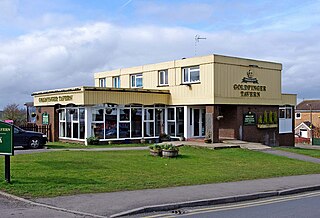 W
WIn the United Kingdom, a flat-roofed pub is a public house with a flat roof, often located on housing estates. They are frequently of concrete construction, with flat roofs rather than more conventional pitched roofs.
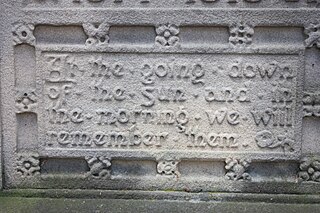 W
W"For the Fallen" is a poem written by Laurence Binyon. It was first published in The Times in September 1914.
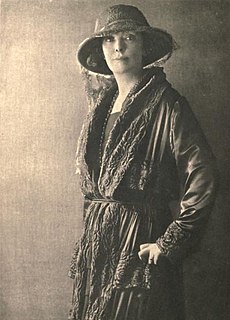 W
WForces Sweetheart is an accolade in the United Kingdom given to those who have become a favourite of serving men in the British Armed Forces, though the term is also used in other countries.
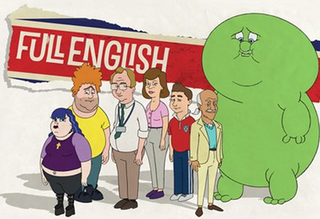 W
WFull English is a British animated sitcom created by Jack Williams, Harry Williams and Alex Scarfe for Channel 4. The programme was produced by Two Brothers Pictures. It parodies and satirises various popular entertainment personalities in the United Kingdom.
 W
WThe Gombey is an iconic symbol of Bermuda, a unique performance art full of colorful and intricate masquerade, dance and drumming. This folklife tradition reflects the island's blend of African, Caribbean and British cultures.
 W
WThe Harvest Festival of Thanksgiving is a celebration of the harvest and food grown on the land in the United Kingdom. It is about giving thanks for a successful crop yield over the year as winter starts to approach. The festival is also about giving thanks for all the good and positive things in our lives such as family and friendships.
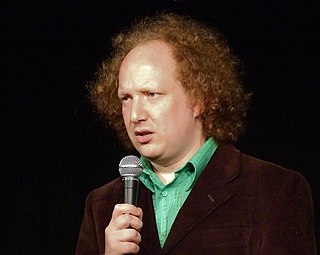 W
WBritish humour carries a strong element of satire aimed at the absurdity of everyday life. Common themes include sarcasm, insults, self-deprecation, taboo subjects, puns, innuendo, wit, and the British class system. These are often accompanied by a deadpan delivery which is present throughout the British sense of humour. It may be used to bury emotions in a way that seems unkind in the eyes of other cultures. Jokes are told about everything and almost no subject is off-limits, though a lack of subtlety when discussing controversial issues is sometimes considered insensitive. Many British comedy series have become internationally popular, serving as a representation of British culture to international audiences.
 W
WThe Institute of Art and Ideas is an arts organisation founded in 2008 in London. Its programming includes the world's largest philosophy and music festival, HowTheLightGetsIn and the online channel IAI TV, where talks, debates and articles by leading thinkers can be accessed, under the slogan "Changing How The World Thinks."
 W
WThe Japan–British Society was founded in 1908 "to encourage the study of things British and to promote cordial relations between the peoples of Great Britain and Japan." It is the oldest bilateral organization in Japan, promoting international cooperation and exchanges.
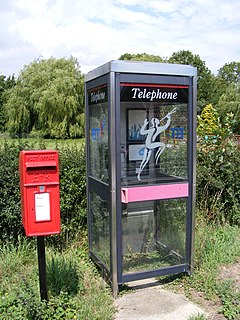 W
WThe KX series of telephone boxes in the United Kingdom was introduced by BT in 1985. Following the privatisation of BT in 1984, the company decided to create a newly designed and improved take on the British telephone box, which at this point consisted of only red telephone boxes which BT had recently acquired, the most common being the iconic K6 box. These red boxes were considered flawed in parts by BT for several reasons, including cost, lack of ventilation, accessibility and maintenance. BT announced the £160 million series of new boxes, the KX series designed by GKN, as well as announcing the eventual replacement of all existing telephone boxes. The main telephone box in the KX range is the KX100. Upon launch, there were five models in total. The boxes were produced at a rate of 5,000 a year, with the total count of all BT-owned kiosks reaching 137,000 by 1999, a number which has since decreased by more than seventy per cent.
 W
WThe Lion and the Unicorn are symbols of the United Kingdom. They are, properly speaking, heraldic supporters appearing in the full royal coat of arms of the United Kingdom. The lion stands for England and the unicorn for Scotland. The combination therefore dates back to the 1603 accession of James I of England who was already James VI of Scotland. By extension, they have also been used in the arms of Hanover between 1837–1866 and the arms of Canada since 1921.
 W
WLobby Lud is a fictional character created in August 1927 by the Westminster Gazette, a British newspaper, now defunct. The character was used in readers' prize competitions during the summer period. Anonymous employees visited seaside resorts and afterwards wrote down a detailed description of the town they visited, without giving away its name. They also described a person they happened to see that day and declared him to be the "Lobby Lud" of that issue. Readers were given a pass phrase and had to try and guess both the location and the person described by the reporters. Anyone carrying the newspaper could challenge Lobby Lud with the phrase and receive five pounds.
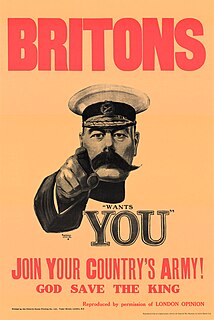 W
WLord Kitchener Wants You is a 1914 advertisement by Alfred Leete which was developed into a recruitment poster. It depicted Lord Kitchener, the British Secretary of State for War, above the words "WANTS YOU". Kitchener, wearing the cap of a British Field Marshal, stares and points at the viewer calling them to enlist in the British Army against the Central Powers. The image is considered one of the most iconic and enduring images of World War I. A hugely influential image and slogan, it has also inspired imitations in other countries.
 W
WAlan Gordon Partridge is a comedy character portrayed by English actor Steve Coogan. A parody of British television personalities, Partridge is an inept broadcaster whose inflated sense of celebrity drives him to treachery and shameless self-promotion. Coogan described Partridge as a Little Englander, with right-wing values and poor taste.
 W
WThe phrase "a nation of shopkeepers", commonly attributed to Napoleon, is a reference to England or the United Kingdom.
 W
WThe Oxford English Dictionary (OED) is the principal historical dictionary of the English language, published by Oxford University Press (OUP). It traces the historical development of the English language, providing a comprehensive resource to scholars and academic researchers, as well as describing usage in its many variations throughout the world.
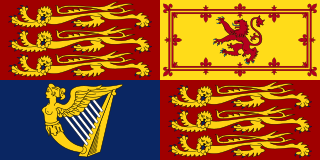 W
WFlags at Buckingham Palace vary according to the movements of court and tradition. The Queen's Flag Sergeant is responsible for all flags flown from the palace.
 W
WPenny dreadfuls were cheap popular serial literature produced during the nineteenth century in the United Kingdom. The pejorative term is roughly interchangeable with penny horrible, penny awful, and penny blood. The term typically referred to a story published in weekly parts of 8 to 16 pages, each costing one penny. The subject matter of these stories was typically sensational, focusing on the exploits of detectives, criminals, or supernatural entities. First published in the 1830s, penny dreadfuls featured characters such as Sweeney Todd, Dick Turpin and Varney the Vampire. The Guardian described penny dreadfuls as "Britain’s first taste of mass-produced popular culture for the young."
 W
WThe Penny Penates is a postcard that was posted on 14 July 1840 to Fulham in London. It was addressed to the writer and practical joker Theodore Hook, who was probably also its sender and artist. The hand-painted design on the postcard shows an image of post office clerks sitting around a giant ink well.
 W
WA postcard or post card is a piece of thick paper or thin cardboard, typically rectangular, intended for writing and mailing without an envelope. Non-rectangular shapes may also be used but are rare. There are novelty exceptions, such as wooden postcards, copper postcards sold in the Copper Country of the U.S. state of Michigan, and coconut "postcards" from tropical islands.
 W
WBritishness is the state or quality of being British, or of embodying British characteristics. It comprises the claimed qualities that bind and distinguish the British people and form the basis of their unity and identity, and the expressions of British culture—such as habits, behaviours, or symbols—that have a common, familiar or iconic quality readily identifiable with the United Kingdom. Dialogue about the legitimacy and authenticity of Britishness is intrinsically tied with power relations and politics; in terms of nationhood and belonging, expressing or recognising one's Britishness provokes a range of responses and attitudes, such as advocacy, indifference, or rejection.
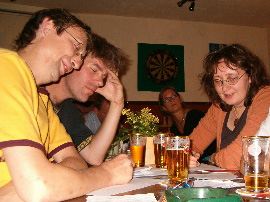 W
WA pub quiz is a quiz held in a pub or bar. These events are also called quiz nights, trivia nights, or bar trivia and may be held in other settings. Pub quizzes may attract customers to a pub who are not found there on other days. The pub quiz is a modern example of a pub game. Although different pub quizzes can cover a range of formats and topics, they have many features in common. The pub quiz was established in the UK in the 1970s by Burns and Porter and became part of British culture. The Great British Pub Quiz challenge is an annual event. Pub quizzes are a staple event at Irish pubs, where they are usually held in English.
 W
WA pub session is performing music in the setting of a local pub, in which the music-making is intermingled with the consumption of ale, stout, and beer and conversation. Performers sing and play traditional songs and tunes from the Irish, English, Scottish and Manx traditions, using instruments such as the fiddle, accordion, concertina, flute, tin whistle, uilleann pipes, tenor banjo, guitar, and bodhrán. Some sessions have dancing too
 W
WA pub is an establishment licensed to serve alcoholic drinks for consumption on the premises. The term public house first appeared in the late 17th century, and was used to differentiate private houses from those which were, quite literally, open to the public as 'alehouses', 'taverns' and 'inns'. By Georgian times it had become common parlance, although taverns, as a distinct establishment, had largely ceased to exist by the beginning of the 19th century. Today, pubs have no strict definition, but CAMRA states a pub has four characteristics:is open to the public without membership or residency serves draught beer or cider without requiring food be consumed has at least one indoor area not laid out for meals allows drinks to be bought at a bar
 W
WPunch and Judy is a traditional puppet show featuring Mr. Punch and his wife Judy. The performance consists of a sequence of short scenes, each depicting an interaction between two characters, most typically Mr. Punch and one other character who usually falls victim to Punch's slapstick. It is often associated with traditional British culture. The various episodes of Punch comedy—often provoking shocked laughter—are dominated by the clowning of Mr. Punch.
 W
WThe red telephone box, a telephone kiosk for a public telephone designed by Sir Giles Gilbert Scott, is a familiar sight on the streets of the United Kingdom, Malta, Bermuda and Gibraltar.
 W
WThe question of whether or not Richard the Lionheart ever came into contact with his namesake animal, the lion, has intrigued modern historians. Known for his largely popular and successful rule over England from 1157 to 1199, as well as his substantial contributions to Christian efforts to reclaim Jerusalem during the Third Crusade, it is assumed that Richard earned his epithet for many reasons including, wrestling with a lion in prison after getting captured by Leopold V of Austria, and his brave and fierce leadership during the third crusade. However, no direct confirmation exists that the king laid eyes on an animal itself.
 W
WThe British royal family comprises Queen Elizabeth II and her close relations. There is no strict legal or formal definition of who is or is not a member of the British royal family. Many members support the Queen in undertaking public engagements and often pursue charitable work and interests. The royal family are regarded as British cultural icons, with young adults from abroad naming the family among a group of people who they most associated with British culture.
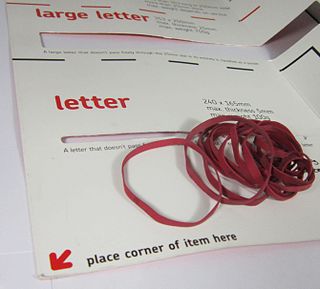 W
WA Royal Mail rubber band is a small red elastic loop used by the postal delivery service in the United Kingdom. In the course of its work, the Royal Mail consumes nearly one billion rubber bands per year to tie together bundles of letters at sorting offices. In the 2000s, complaints about Royal Mail rubber bands littering the streets of Britain gave rise to ongoing press interest in this minor cultural phenomenon. The Royal Mail no longer uses red rubber bands.
 W
WThe school tie is part of the school uniform required by a large numbers English schools. The old school tie refers to a tie voluntarily worn by alumni of long established British schools. Figuratively, it is used to refer to the connection between members of the elite who attended the institutions: this is particularly associated with public schools.
 W
WThe social season, or season, refers to the traditional annual period when it is customary for members of a social elite of society to hold balls, dinner parties and charity events. Until World War I, it was also the appropriate time to be resident in the city rather than in the country in order to attend such events.
 W
WSheep farming or sheep husbandry is the raising and breeding of domestic sheep. It is a branch of animal husbandry. Sheep are raised principally for their meat, milk, and fiber (wool). They also yield sheepskin and parchment.
 W
WSheep shearing is the process by which the woollen fleece of a sheep is cut off. The person who removes the sheep's wool is called a shearer. Typically each adult sheep is shorn once each year. The annual shearing most often occurs in a shearing shed, a facility especially designed to process often hundreds and sometimes more than 3,000 sheep per day.
 W
WShrove Tuesday is the day before Ash Wednesday, observed in many Christian countries through participating in confession and absolution, the ritual burning of the previous year's Holy Week palms, finalizing one's Lenten sacrifice, as well as eating pancakes and other sweets.
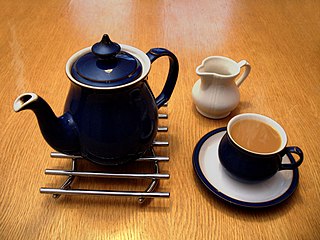 W
WSince the 18th century, the United Kingdom has been one of the world's largest tea consumers, with an average annual per capita supply of 1.9 kilograms (4.2 lb). Originally an upper-class drink in Europe, tea gradually spread through all classes, eventually becoming a common drink. It is still considered an important part of the British identity and is a prominent feature of British culture and society.
 W
W"Ten Green Bottles" is a children's repetitive song that is popular in the United Kingdom. In essence, the song is a single verse repeated, each time with one bottle fewer:
 W
W"The Two Cultures" is the first part of an influential 1959 Rede Lecture by British scientist and novelist C. P. Snow which were published in book form as The Two Cultures and the Scientific Revolution the same year. Its thesis was that science and the humanities which represented "the intellectual life of the whole of western society" had become split into "two cultures" and that this division was a major handicap to both in solving the world's problems.
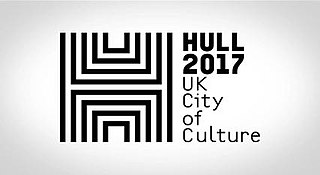 W
WThe UK City of Culture is a designation given to a city in the United Kingdom for a period of one year. The aim of the initiative, which is administered by the Department for Digital, Culture, Media and Sport, is to "build on the success of Liverpool's year as European Capital of Culture 2008, which had significant social and economic benefits for the area". The inaugural holder of the award was Derry~Londonderry in 2013. In 2017, Kingston upon Hull took over the title. On 7 December 2017 it was declared that Coventry had been chosen to host in 2021.
 W
WThe British counter-culture or underground scene developed during the mid 1960s, and was linked to the hippie and subculture of the United States. Its primary focus was around Ladbroke Grove and Notting Hill in London. It generated its own magazines and newspapers, bands, clubs and alternative lifestyle, associated with cannabis and LSD use and a strong socio-political revolutionary agenda to create an alternative society.
 W
WWenlock is the official mascot for the 2012 Summer Olympics, and Mandeville is the official mascot for the 2012 Summer Paralympics, both held in London, England, United Kingdom. Named after Much Wenlock and Stoke Mandeville, they were created by Iris, a London-based creative agency. The mascots were unveiled on 19 May 2010, marking the second time that both Olympic and Paralympic mascots were unveiled at the same time.
 W
W"White van man" is a stereotype used in the United Kingdom for a smaller-sized commercial van driver, typically perceived as a selfish, inconsiderate driver who is mostly petit bourgeois and often aggressive. According to this stereotype, the "white van man" is typically an independent tradesperson, such as a builder, plumber or locksmith, self-employed, or running a small enterprise, for whom driving a commercial vehicle is not their main line of business, as it would be for a professional freight-driver.
 W
WThe culture of Yorkshire has developed over the county's history, influenced by the cultures of those who came to control the region, including the Celts, Romans, Angles, Vikings and Normans. Yorkshire people are said to have a strong sense of regional identity and have been viewed to identify more strongly with their county than their country. The Yorkshire dialect and accent is distinctive, although use of dialect words is receding.